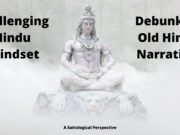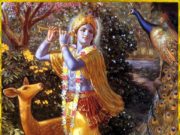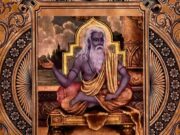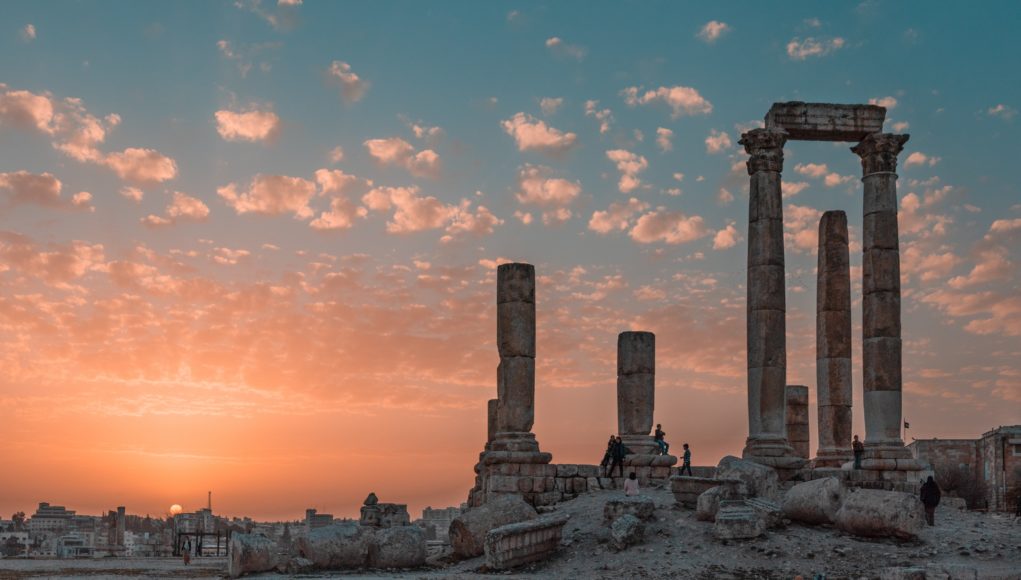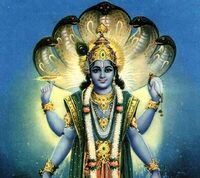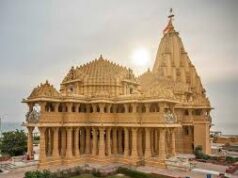Zoroastrianism is the original culture and religion of Persia.
Iran is an Islamic name which usually represents the Islamic conquest over Persia and Zoroastrians.
Most Zoroastrians left for India when they could not tolerate the Islamic atrocities. When a Muslim from Iran calls themselves as Persian, that is due to their affection for the original culture of that region. Persian name itself comes from Mahabharat. Many aspects of Zoroastrianism are present in the culture and mythologies of the people of Greater Iran, not least because Zoroastrianism was a dominant influence on the people of the cultural continent for a thousand years. Even after the rise of Islam and the loss of direct influence, Zoroastrianism remained part of the cultural heritage of the Iranian language-speaking world, in part as festivals and customs, but also because Ferdowsi incorporated a number of the figures and stories from the Avesta in his epic Shāhnāme, which is pivotal to Iranian identity. One notable example is the incorporation of the Yazata Sraosha as an angel venerated within Shia Islam in Iran.
If we say that those Iranians who haven’t converted to Islam are still Zoroastrian won’t be very far from truth.
The religion of Zoroastrianism is closest to Vedic religion to varying degrees. In today’s terms we can say that Zoroastrianism came from Hinduism. Because Hinduism itself is based on Vedic scriptures. Some historians believe that Zoroastrianism, along with similar philosophical revolutions in South Asia were interconnected strings of Vedic thread. Many traits of Zoroastrianism can be traced back to the culture and beliefs of the prehistoric Vedic period.
Aryan invasion theory is totally debunked today because it was just a theory implanted by Christian missionaries to bring credence to their own Abrahamic faiths.
In order to bring credence to themselves and confuse Hindus they invented the Aryan invasion theory. Zoroastrianism consequently shares elements with the historical Vedic religion that also has its origins in that era.
Some examples include cognates between the Avestan word Ahura (“Ahura Mazda”) and the Vedic Sanskrit word Asura (“demon; evil demigod”); as well as Daeva (“demon”) and Deva (“god”) and they both descend from a common Vedic religion.
That Hinduism or Vedic culture is the source of Zoroastrians is an established fact, even through islamic Iranians wont admit it for their political purposes. Gatha is a Sanskrit word meeting a story or a treatise.
In Sanskrit language, the name of the country is pārasya (पारस्य). The epic Mahabharata which is also called fifth Veda, mentions that the pārasīk (पारसीक) nation lives in the north of India in the “Bhishmaparva” section of Mahabharat.
Therefore, in India, most Zoroastrians are called Parsi. The Greeks took this name and called all inhabitants of that region as Persia. Before Islamic invasion the entire region was called the land of Parsis or Persia. The religion was predominantly Hindu and most Zoroastrians followed that culture.
The invasion of Islam on Persia led to the destruction of Zoroastrian culture because that was considered as kafir.
Islamic conquerors of Persia or Parsik called their language Zoroastrian Dari as the language of Kafirs and demonized their language. There has been a complete attempt to obliterate the existence of language through social boycott and governmental organizations. The period since the seventh-century Muslim conquest of Persia has been a time of great persecution for the Zoroastrians of Iran.
All the gods mentioned in Zoroastrianism are also described in Hindu culture with mispronounced names because of the distance separating them from their land of Faith India.
The converted Muslims of Iran are to be called Iranians not Persians because Persians by name and origin are all Hindu or non Islamic. Zoroastrians can be called Persians because they respect the origin of their faith and culture. But the Muslim converts cannot be called Persians because they have been converted by force. Which ever Iranian Muslim who loves to be called Persian has a confused identity. That is the distinction.
The original Persians who never converted to Islam live in India today and they are called by their original name Parsi or Parsik.
Disclaimer: Views expressed are personal to the author
Please donate to help us in our online temple services.


